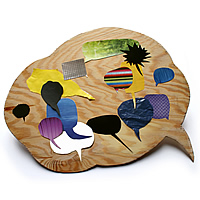It’s fun to think that the new world of the Internet demands entirely new methods to connect and cultivate supporters. But as it turns out, many ancient practices still apply. Case in point, this recent study of successful and unsuccessful Kickstarter campaign language. It found that phrases connected to value for the audience, and confidence for the initiative, tended to win support more than phrases that lacked connection or confidence of success.
The study analyzed more than 45,000 Kickstarter campaigns, correlating to their success in achieving their funding goals. The authors found that language choice could account for 58 percent of the variance around success. Key language that aligned with success, according to the study release, included:
- Reciprocity or the tendency to return a favor after receiving one as evidenced by phrases such as “also receive two,” “pledged will” and “good karma and.”
- Scarcity or attachment to something rare as shown with “option is” and “given the chance.”
- Social Proof, which suggests that people depend on others for social cues on how to act as shown by the phrase “has pledged.”
- Social Identity or the feeling of belonging to a specific social group. Phrases such as “to build this” and “accessible to the” fit this category.
- Liking, which reflects the fact that people comply with people or products that appeal to them.
- Authority, where people resort to expert opinions for making efficient and quick decisions as shown by phrases such as “we can afford” and “project will be.”
Of course, the clarity and confidence of the language might also indicate the clarity and confidence of the project leaders, and language might be a proxy for many other aspects of the effort. But still, it’s good to know that some old tricks of framing, connecting, and motivating positive support still might have some impact in the digital world.
Beyond traditional communications strategies, the words “cats” and “Christina” also tracked well with success (with “Christina” associated to celebrities with that name). So, there’s still time to redraft your annual appeal letter to include a few new words.


